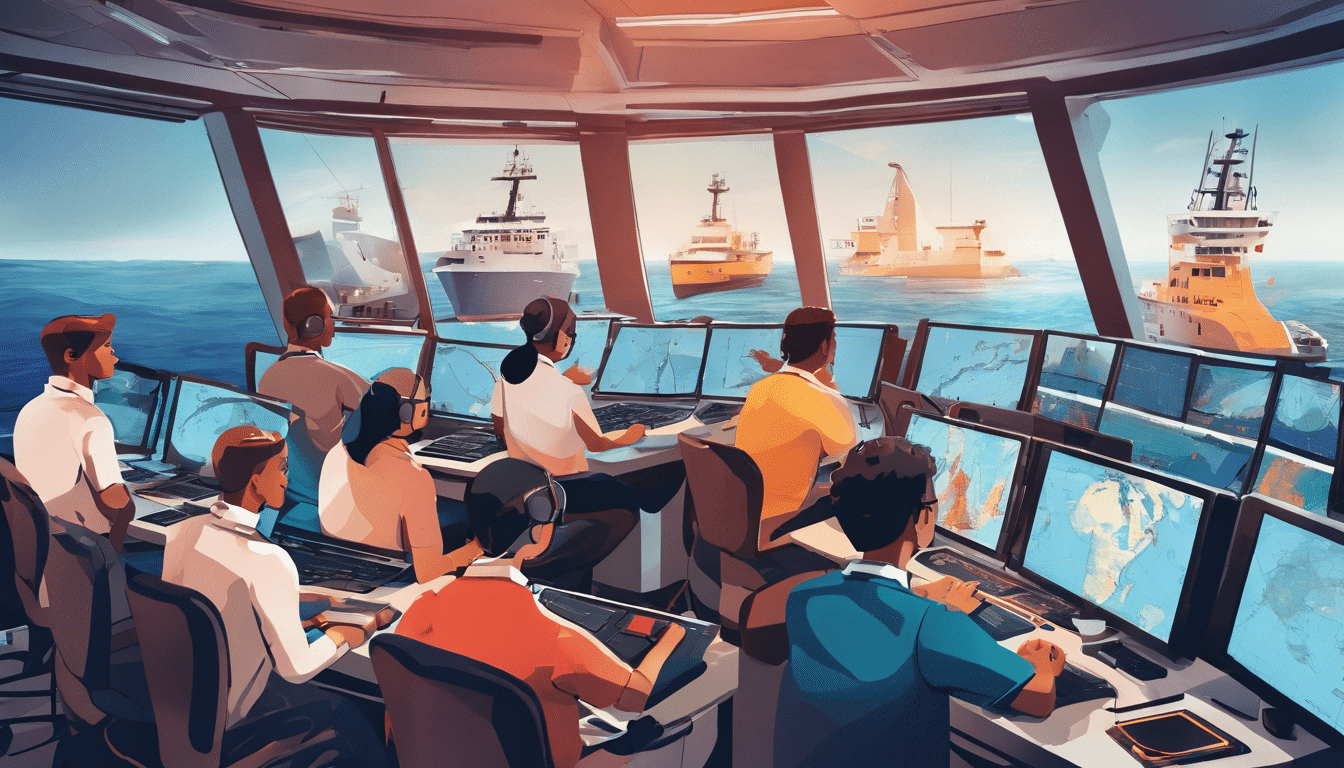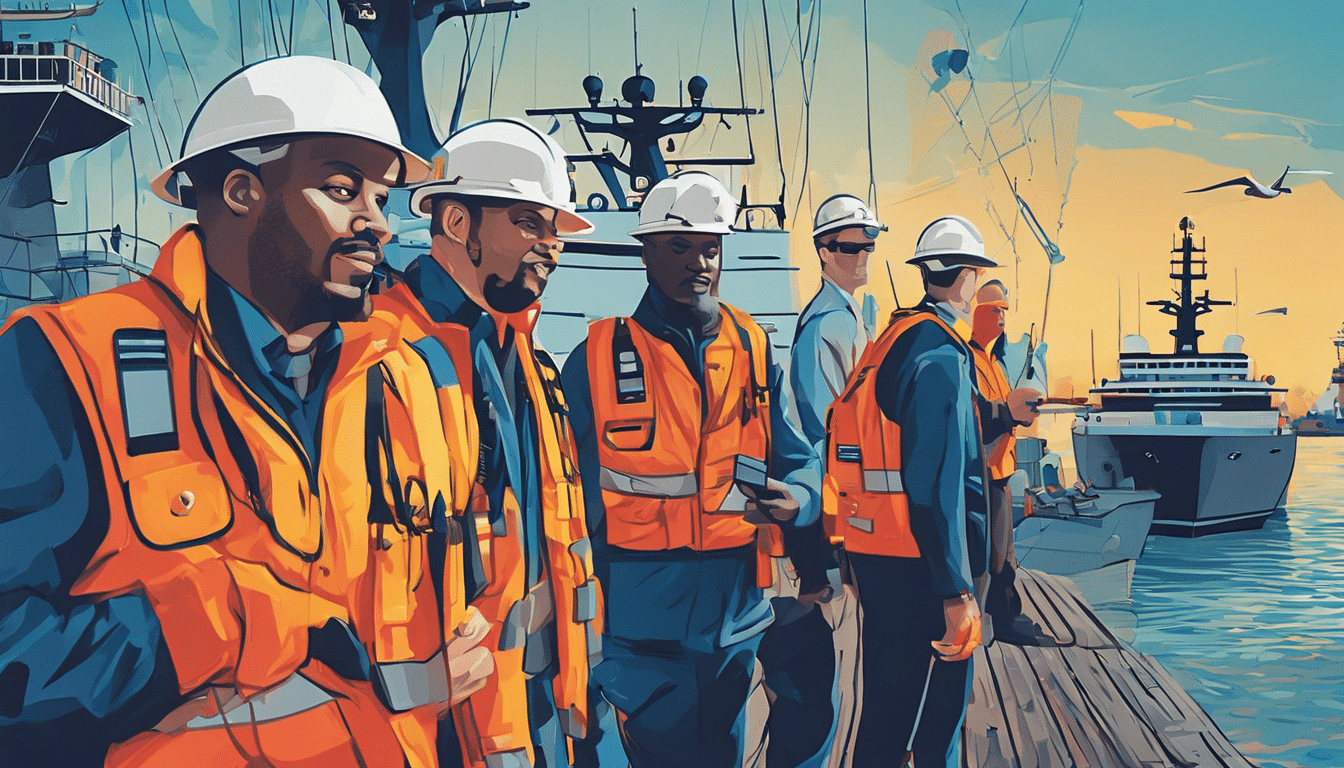In recent years, the education landscape has dramatically shifted from traditional classrooms to innovative online platforms, and this change is profoundly evident in the realm of maritime studies. The article ‘From Classroom to Cockpit: Embracing Online Maritime Education’ delves into the evolution of maritime education, highlighting how online learning is revolutionizing the way future maritime professionals acquire knowledge and skills. With advancements in technology that bring maritime training to the digital forefront, we will explore the numerous advantages of online learning, discuss the challenges that institutions and learners face, and gaze into the future of maritime training and professional development in an ever-evolving industry.
Learn More About Our Courses Here!
Key Takeaways
- The shift from traditional classroom-based learning to online platforms is revolutionizing maritime education.
- Online learning offers flexible schedules and accessible resources, catering to a diverse range of students in maritime studies.
- Despite the benefits, challenges such as practical skill development and technology gaps must be addressed for effective online training.
- Innovative solutions such as virtual simulations and interactive modules can enhance online maritime education.
- The future of maritime training looks promising with continuous advancements in technology and online teaching methodologies.
The Evolution of Maritime Education
The landscape of maritime education has undergone a significant transformation over the years, particularly with the advent of technology. Today, we witness a remarkable shift as educational institutions are moving ‘From Classroom to Cockpit: Embracing Online Maritime Education.’ This evolution has made maritime training more accessible, allowing aspiring seafarers from various backgrounds to pursue their dreams without geographical limitations. Online platforms now offer comprehensive courses, virtual simulations, and interactive learning modules, thus enhancing the educational experience for students worldwide. With the added convenience of flexible learning schedules, future maritime professionals can balance their studies with personal commitments, ensuring a broader reach for maritime careers. Moreover, these advancements prepare students for the demands of modern maritime operations, equipping them with not only theoretical knowledge but also practical skills that can be applied directly in the cockpit or on the deck. As maritime education continues to adapt, it stands to foster a new generation of highly qualified professionals ready to take on the challenges of the maritime industry.
Advantages of Online Learning in Maritime Studies
The maritime industry is rapidly evolving, and with it, the methods of education that prepare future seafarers and maritime professionals. One significant advantage of online learning in maritime studies is its flexibility. Aspiring mariners can balance their studies with other commitments, such as work or family, allowing them to learn at their own pace. Online courses, such as those offered in ‘From Classroom to Cockpit: Embracing Online Maritime Education,’ provide access to a wealth of resources and expert instruction from anywhere in the world, breaking down geographical barriers. Furthermore, these programs often incorporate simulated environments and interactive modules that enhance practical skills without the need for physical presence. This innovative approach not only fosters self-discipline and motivation among students but also ensures that they receive education that is relevant and aligned with the latest technological advancements in the maritime sector. By embracing online maritime education, learners are better equipped for the challenges of the modern maritime landscape.
‘Education is the most powerful weapon which you can use to change the world.’ – Nelson Mandela
Learn More About Our Courses Here!
Challenges and Solutions in Online Maritime Education
The advent of technology has revolutionized many industries, and maritime education is no exception. As we explore the challenges and solutions in online maritime education, we must acknowledge the substantial shift that has taken place—indeed, we have transitioned ‘From Classroom to Cockpit: Embracing Online Maritime Education.’ One of the primary challenges faced in this domain is the inherent practical nature of maritime training, which requires hands-on experience that online platforms struggle to replicate. To address this, innovative institutions are adopting hybrid models that combine online coursework with on-water training simulations and real-world applications. Additionally, the lack of interaction that conventional classrooms offer can be mitigated through interactive tools and virtual reality (VR) simulations that immerse students in real maritime scenarios. As the industry continues to evolve, embracing these technological solutions not only enhances learning experiences but also prepares future mariners to thrive in the dynamic maritime landscape.
The Future of Online Maritime Training and Professional Development
As the shipping industry continues to evolve, the need for effective maritime training has never been more critical. Online maritime education is revolutionizing the way seafarers acquire skills and knowledge, making it accessible to a global audience. The shift from traditional classroom settings to digital platforms enables students to learn at their own pace and from the comfort of their homes or onboard vessels. This innovative approach is particularly beneficial for professionals seeking to balance their busy seafaring careers with ongoing professional development. Utilizing advanced technology, such as virtual reality simulations and interactive coursework, online maritime training provides immersive learning experiences that were previously unimaginable. From Classroom to Cockpit: Embracing Online Maritime Education not only enhances the learning experience but also bridges the gap between theoretical knowledge and practical application, ensuring that maritime professionals are well-equipped to meet the challenges of tomorrow’s maritime industry.
About Virtual Maritime Academy
Virtual Maritime Academy is a leading provider of online maritime education and training, offering a wide range of courses designed to meet the needs of the global maritime industry. With a commitment to quality and innovation, Virtual Maritime Academy is dedicated to preparing seafarers and maritime professionals for success in their careers. Now a DNV Certified Maritime Training Provider, the academy upholds the highest standards of excellence in training and education.








